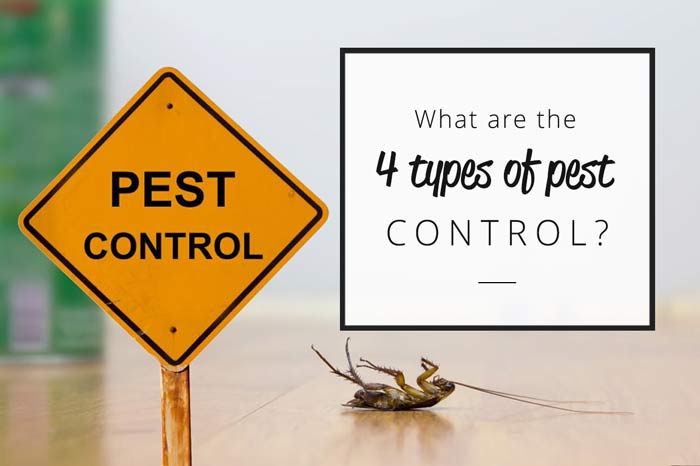Pest Control Fundamentals Explained
Pest Control Fundamentals Explained
Blog Article
The Facts About Pest Control Revealed
Table of ContentsThe 8-Minute Rule for Pest ControlPest Control Can Be Fun For AnyoneNot known Facts About Pest ControlThe Main Principles Of Pest Control Some Known Factual Statements About Pest Control
Limitations of Chemical Management Have the ability to evaluate bug troubles, identify if monitoring is essential, and make proper recommendations making use of IPM methods. Recognize with various techniques of pest monitoring - their benefits and constraints. Comprehend the worth of helpful bugs. It is not possibleor also desirableto rid gardens of all parasites.This chapter goes over (IPM), an approach that utilizes expertise about parasites and their, practices, nonchemical techniques, and chemicals to manage bug troubles. Additional info concerning IPM for specific plants is included in phases that focus on those plants. Nonchemical insect control procedures are stressed in chapter 17, "Organic Gardening." Handling birds and creatures is covered in chapter 20, "Wildlife." Handling in the backyard and yard is covered in phase 6, "Weeds." Insects in a garden or landscape might consist of bugs and mites, weeds,, creatures, and birds.
Lots of people rush to pull, hoe, or spray every weed they see. Bugs and weeds, nevertheless, play a function in the. After planting a garden or establishing a yard, the natural process of plant succession starts to reestablish and nonnative plants. A weed growing in a lawn represents the initial stage in a sequence of occasions that, if permitted to proceed, can at some point result in a forest.
What we call "parasites" become part of a natural system at the office. An ecosystem has no pests. Only humans think about specific varieties pests when they occur where they are not wanted. We will be more successful in managing undesirable types when we recognize that these organisms follow foreseeable patterns that we can utilize to our advantage.
Get This Report about Pest Control
Insects prone to a chemical were quickly killed, leaving resistant ones to reproduce and increase. It came to be clear that chemicals alone would not resolve all insect issues.
An IPM strategy permits some level of insects in the atmosphere. Bugs are a lot less most likely to endure a program that makes use of various methods of decreasing their populations. Integrated bug administration was very first recommended by entomologists due to the fact that pests were the initial team of parasites to confirm hard to take care of with chemicals alone.
A limit is the factor at which action should be taken. IPM has actually expanded past bugs to management of all pest populaces: weeds, condition microorganisms, and mammals.
Pest Control - Truths
Administration instead than eradication of bugs is the objective. An IPM plan begins with a mindful evaluation of each bug problem.
Clover growing in a yard might be deemed an unwanted his response weed, however as a legume it is synthesizing nitrogen for the soil and the blossoms are providing nectar to honey bees and various other. Resistance for some weeds might belong to an IPM plan. may be consuming the fallen leaves of a plant, but when they are identified as the larvae of Eastern tiger swallowtail butterflies, their damage might be endured so we can enjoy the lovely butterfly.

The 2nd crucial device in insect monitoring is early treatment. Being existing and watchful in the garden makes sure early discovery. Reacting to problems quickly, prior to they have go to my site time to multiply, requires a much less significant intervention. The third crucial tool is recordkeeping; tracking what takes place in the yard makes it possible for a gardener to acknowledge patterns and make notified choices.
Some Known Details About Pest Control
Many safe, practical, nonchemical approaches of plant defense and bug monitoring might minimize or get rid of the requirement to spray. Other methods are most advantageous when used with pesticides. To implement management techniques appropriately and to decrease losses, garden enthusiasts need to know the kinds of bugs that assault plants and recognize pest biology.

Performing a soil test and applying just the advised quantity of fertilizer and lime optimizes the advantage to the plant while reducing issues associated with too much use of plant food - Pest Control. Covering the soil with several inches of mulch shields the plant in several ways: decreasing soil water loss to evaporation, lessening weed competitors, supplying nutrients, and developing an ideal setting for earthworms and microbes that maintain the dirt loosened for origins and damage down natural product to launch nutrients
If mulch touches the trunk, it can create a means for voles, microorganisms, and fungis to assault the plant. Do not use manure or compost that has actually not extensively disintegrated as a top dressing because it can urge unwanted insects. Research recommends that farming is damaging to soil structure.
The smart Trick of Pest Control That Nobody is Talking About
If tilling is regarded needed, think about doing it in the fall when the life process of many parasites brings them near the surface. At the surface area, bugs become subjected to the climate in addition to birds and various other natural adversaries. Fall tilling can additionally destroy pests in crop deposits. Usage disease-free and insect-free qualified seeds and plants if offered.
Report this page